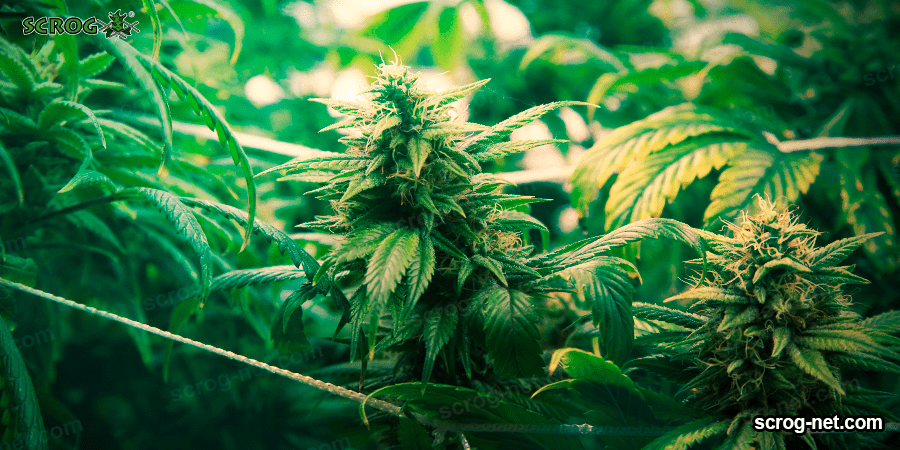The use of cannabis in medicine has been around for many years. In fact, it was used to treat illnesses and diseases in ancient societies. The ancient Chinese used it as a remedy for various pains and illnesses. The Egyptians also used it and the highest medical authority at the time, the physician Ibn Sima, had this herb planted among his students for them to study.
Today, although more and more states in the United States, Canada, the United States and other countries have legalized the medical use of cannabis, science is still trying to determine to what extent it can be beneficial to health. This can be a bit complicated, as each hit of cannabis contains many different compounds that can have different effects.
Studies have found that cannabis can help alleviate the symptoms of many common medical conditions. This includes chronic diseases such as cancer, arthritis, epilepsy, HIV/AIDS, glaucoma, and Parkinson’s disease, among many others. Some of the major benefits of using cannabis in medicine include chronic pain relief, anxiety reduction, stress relief, increased appetite, mood enhancement and reduction of AIDS symptoms.
In addition, cannabis has also been found to help alleviate symptoms of psychiatric illnesses, such as depression, bipolar disorder, obsessive compulsive disorder and schizophrenia. Some studies have also shown that cannabis can help alleviate symptoms of post-traumatic stress disorder, although more research is needed to confirm this.
One study has shown that cannabis can have a positive effect on the immune system. This is because some of the compounds present in cannabis have anti-inflammatory properties, which means that they can help reduce inflammation and swelling.
What does cannabis do?
This can have a positive effect on protecting the immune system, as chronic inflammation can weaken the immune system and make it more vulnerable to infectious diseases. However, the use of cannabis in medicine raises significant safety concerns. This is because cannabis can have adverse effects, such as drowsiness, dizziness, mood swings, memory and coordination problems, and in people with underlying medical conditions, it can affect cognitive function. For these people, it is important that they receive medical advice before using cannabis to alleviate symptoms of any chronic condition.
There is evidence that cannabis use can interact negatively with other medications and a medical specialist should be consulted before making any decisions. With all these factors in mind, the use of cannabis in medicine remains a controversial issue, but scientists are working hard to better understand its effects and determine how it can safely contribute to the treatment of various medical conditions.
With increasing research into the use of cannabis in medicine, scientists are increasingly discovering the benefits it can have in treating a wide variety of medical conditions. True, there are some risks involved, but the evidence suggests that cannabis can have great utility for modern medicine. Individuals who choose to use cannabis to treat their medical conditions should speak with a healthcare professional who is qualified to assess whether cannabis use is a safe and appropriate option for their particular situation. Although the use of cannabis in medicine is still controversial, its potential for the treatment of various chronic diseases or conditions is undoubtedly promising.
Current status of cannabis for recreational use
Nowadays, cannabis for recreational use is gaining more and more acceptance in society. This is mainly due to the increasing awareness of the benefits of its use as well as the growing number of studies showing its positive effect on mental and physical well-being. Therefore, the recreational use of cannabis has increased enormously in recent years.
However, there are still countries where the recreational use of cannabis is not yet legalized and in many of these places, marijuana is still considered illegal. This means that despite the enormous benefits that the recreational use of cannabis has for the population as a therapeutic option, limitations are established for its access and consumption.
In addition, the social stigma that has been built around the recreational use of cannabis also prevents further development in this area. In many cases, recreational cannabis use is still seen as illegal or harmful, misinformed by anti-cannabis propaganda. This leaves many people still lacking the necessary knowledge and understanding of the benefits that recreational cannabis use offers. There are still problems with the regulation of recreational cannabis use by legislation. For example, there are still limits on how much cannabis a person can possess in recreational use situations. This can present some limitations to the full enjoyment of recreational cannabis use.
However, the future of recreational cannabis use looks promising. More and more countries are legalizing its use and this opens up new opportunities to bring cannabis to the population in a legal and safe way. In addition, the changing mindset around the recreational use of cannabis is also contributing to its advancement. This means that more and more people are becoming increasingly aware that recreational cannabis use is a safe, effective and risk-free option to improve their well-being.

